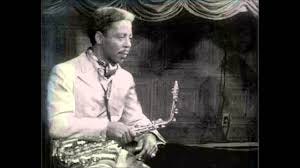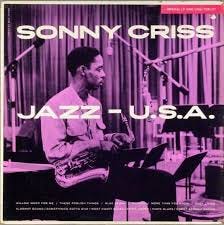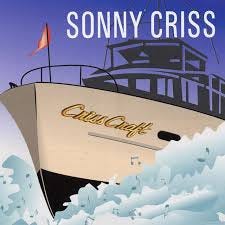In the cosmology of jazz instrumentation, the soprano saxophone is the grease that hits the fry cook’s arm. The tenor saxophone is the salve on the wound. And the alto saxophone is the bandage that gets ripped off too soon, causing a moment of searing pain.
Exception: When Sonny Criss is playing alto.
Criss had a classic deep inviting sound. He was a young man in Los Angeles in the 1940s, when the bebop insurrection led by alto legend Charlie Parker caught fire. He’s quoted in Ira Gitler’s excellent account Swing To Bop as saying that prior to hearing Parker, he “liked everybody,” including such established figures as Johnny Hodges of the Duke Ellington Orchestra, Benny Carter and Eddie Cleanhead Vinson, and that’s audible in his recorded work. Still, encountering Parker was a transformational moment for Criss: “When I heard those records, just like my mind popped. I didn't have the slightest idea what he was doing, but I felt it.”
Many musicians had that reaction to the music Parker and Dizzy Gillespie developed in the clubs of New York. Those who happened to play alto saxophone couldn’t avoid Parker’s sound, his furtive phrasing, the lines that spiraled from his horn like run-on sentences from the pen of a manic magic realist.
For those who followed in Bird’s footsteps, the challenge was to avoid sounding entirely like a copycat, or a third-year student. Criss seems to have intuited this: His early records showcase an alto sound that’s boisterous and lively and brilliant – at least a half-block away from Parker’s sonic concept. (To hear the two together, with Chet Baker, in Inglewood California in 1952, click here.) Today we’d say that’s not a bad place to start, given that emulation is an established part of formal jazz education.
What’s interesting about Criss, who recorded under his own name sporadically for decades with little commercial impact, is where he went from there, and how. He took his time assimilating the language of bop, and then, over years of gigging, methodically developed his own musical signature that deftly expanded on the bebop foundation. Criss might have been tagged as just another in the flock of “baby Birds” when he started, but as he went along, he incorporated musical elements that individuated his solos. He leaned into wailing blues pitch-bends, essayed ballads with understated cool and very little show business in them, and created concise, purposeful chromatic lines that darted, via split-second dissonances, away from convention.
This progression is traceable on records that bookend Criss’ years of recording activity. In 1956, Criss made three albums for Imperial that stand among his best works; all reward repeat spins. Plays Cole Porter, with uptempo burners like “It’s All Right With Me,” catches Criss celebrating bop’s infectious glibness, while other tracks, like the medium-tempo treatment of “I Love You,” travel beyond the form’s clichés. For more in that vein, there’s “How Deep Is the Ocean” from Go Man!.
Jump ahead to 1975. Criss was no longer a rising star; he’d done the European exile move with mixed success, and hadn’t recorded under his own name for six years. Bob Porter of Muse Records signed him for a “comeback” date with West Coast players, and encouraged Criss to reach beyond standards for material.
Criss, who died by suicide in 1977 while battling stomach cancer, followed that advice, drawing tunes from a frequent collaborator, pianist Horace Tapscott (watch this space for an Echo Locator feature). One, “The Isle of Celia,” is a swank Afro-Latin groove with a chord sequence partly derived from Horace Silver’s “Song For My Father.” Another, “This Is For Benny,” uses a triple-meter rhythm to send Criss and his band on a surging, occasionally furious search for ecstasy. That Criss solo unfolds like an epic, and suggests a long-time-coming triumph of voice: There’s Bird but really just a trace. The torrent of ideas, and the thick, multi-dimensional tone, and the exacting articulation, and on and on? That’s pure Criss.
Why yes, we have a fancy digital suggestion box. Share your favorite Underloved/Overlooked records here: echolocatormusic@gmail.com.
Please consider subscribing (it’s free!). And…..please spread the word! (This only works via word of mouth!)







